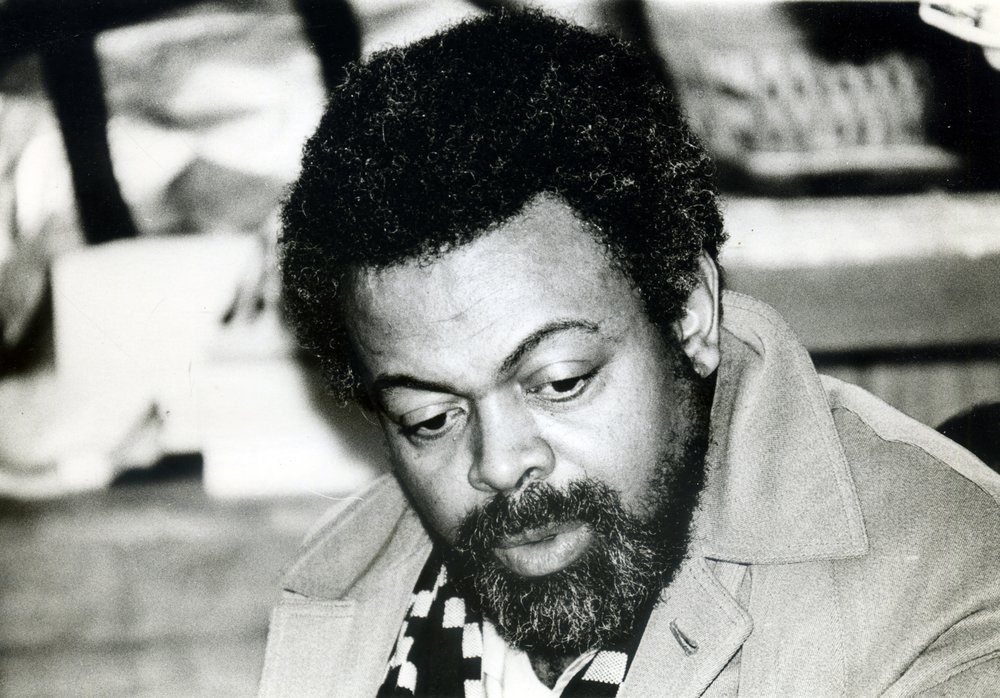Activist in Newark, NJ: We must end the 'ban on Black history'
Feb. 19, 2023, 3:33 p.m.
The city was the birthplace of Amiri Baraka, one of several Black scholars and artists whose works were removed from an AP African History studies course description

What longtime activist Lawrence Hamm is calling a "ban on Black history" is hitting home in Newark, New Jersey.
“We’re going to know our history, regardless of what [Florida Gov. Ron] DeSantis said,” Hamm, chair of the People’s Organization for Progress, said Sunday during a Black History Month event at the Mount Zion Baptist Church in Newark.
The city had been the birthplace of poet, playwright and scholar Amiri Baraka — father of present-day Mayor Ras Baraka, and one of multiple Black intellectuals and artists whose works the College Board removed from a curriculum for an Advanced Placement course in African American Studies this month. References to other Black scholars and authors including Kimberlé W. Crenshaw, Angela Davis and bell hooks were also removed.
The changes came amid pushback from DeSantis and other conservatives. DeSantis announced late last month Florida would reject the AP course, based on an earlier draft of its curriculum. He accused the course of indoctrinating students to "a political agenda."
“We have to have Black-conscious teachers in the classroom, because who teaches the subject is also as important as what’s being taught,” Hamm said. His group is planning a protest against about the changes to the AP course Saturday, Feb. 25 on Springfield Avenue in Newark as well.
Baraka, born in Newark as Everett LeRoi Jones, founded Harlem’s Black Arts Repertory Theatre and is generally credited as the founder of the Black Arts Movement of the 1960s. As described by the National Archives: “Artists associated with this movement include Audre Lorde, Ntozake Shange, James Baldwin, Gil Scott-Heron, and Thelonious Monk.”
In addition to earning respect for his own works on Black liberation, Baraka founded Totem Press to publish works of political activists. He’d also been the second poet laureate of New Jersey, starting in July 2002. The position was abolished a year later, after Baraka wrote a poem about the Sept. 11, 2001 terrorist attacks that was widely criticized as antisemetic.
The updated AP curriculum made several other changes — including stating that lessons on the Black Lives Matter movement were optional, removing references to Black queer studies and offering an example of “Black conservatism” as an idea for a research project.
The College Board has denied that political pressure played a role in the changes to its AP course, and said in a statement it regretted “not immediately denouncing the Florida Department of Education’s slander, magnified by the DeSantis administration’s subsequent comments, that African American Studies ‘lacks educational value.’”
The College Board also said it made mistakes in its rollout its drafts for the course curriculum and “should have made clear that the framework is only the outline of the course, still to be populated by the scholarly articles, video lectures, and practice questions that we assemble and make available to all AP teachers in the summer for free and easy assignment to their students.”
“This error triggered a conversation about erasing or eliminating Black thinkers,” the College Board wrote. “The vitriol aimed at these scholars is repulsive and must stop.”
In response to conservative pushback over the AP course, New Jersey Gov. Phil Murphy announced this week that the state will expand Advanced Placement African American studies courses to 26 schools across the state starting next school year. The course is currently offered in one New Jersey school, among 60 nationwide, as part of a two-year pilot program.